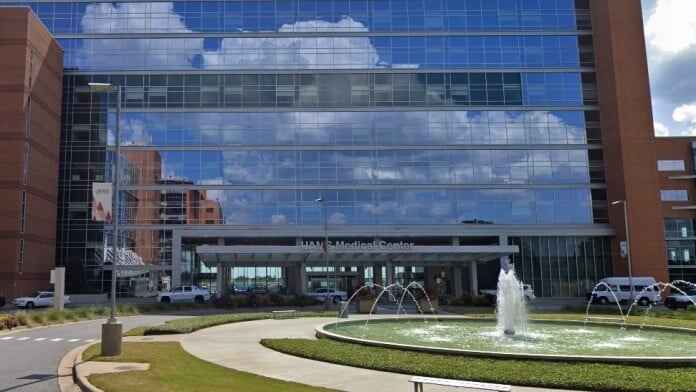About UAMS Psychiatric Research Institute – Little Rock
UAMS Psychiatric Research Institute offers outpatient care at their center for addiction services and treatment in Little Rock, Arkansas. They treat opioid use disorders with medication assisted treatment, or MAT. To treat opioid detoxification, withdrawal, and cravings this method combines individual and group therapy with the use of medications such as methadone, Vivitrol, buprenorphine, Suboxone and others.
The FDA has approved the medications used in their treatment and these programs are clinically driven and customized to meet the individual needs of each patient. They offer group and individual therapies using evidence based techniques.
For those who are addicted to opiates such as heroin and narcotic painkillers, their Suboxone treatment program is designed to offer opiate agonist therapy. This therapy works by having effects akin to those of these medications to prevent withdrawal symptoms when an individual stops using them. The program, which is focused on treatment and recovery, operates in a welcoming and safe atmosphere.
Every client needs to show that they are prepared to give up all substances that affect their mood and to stick with the program until they have completed it to the successful degree that their treatment team has decided upon. In addition to having appropriate transportation, clients must be 16 years of age or older and able to fulfill the necessary time and financial obligations.
Their Subutex treatment program offers opiate agonist therapy for women who are opiate dependent. Customers participating in this program have to be at least 18 years old. Additionally, women wishing to participate in this program have to be expecting and in prenatal care.
Their alcohol recovery program is developed to offer assistance to people who battle with binge drinking. This program is special in that it allows you to switch to a monthly injection of naltrexone also known as Vivitrol. They also prescribe methadone to help people reduce or quit their use of heroin or other opiates.
